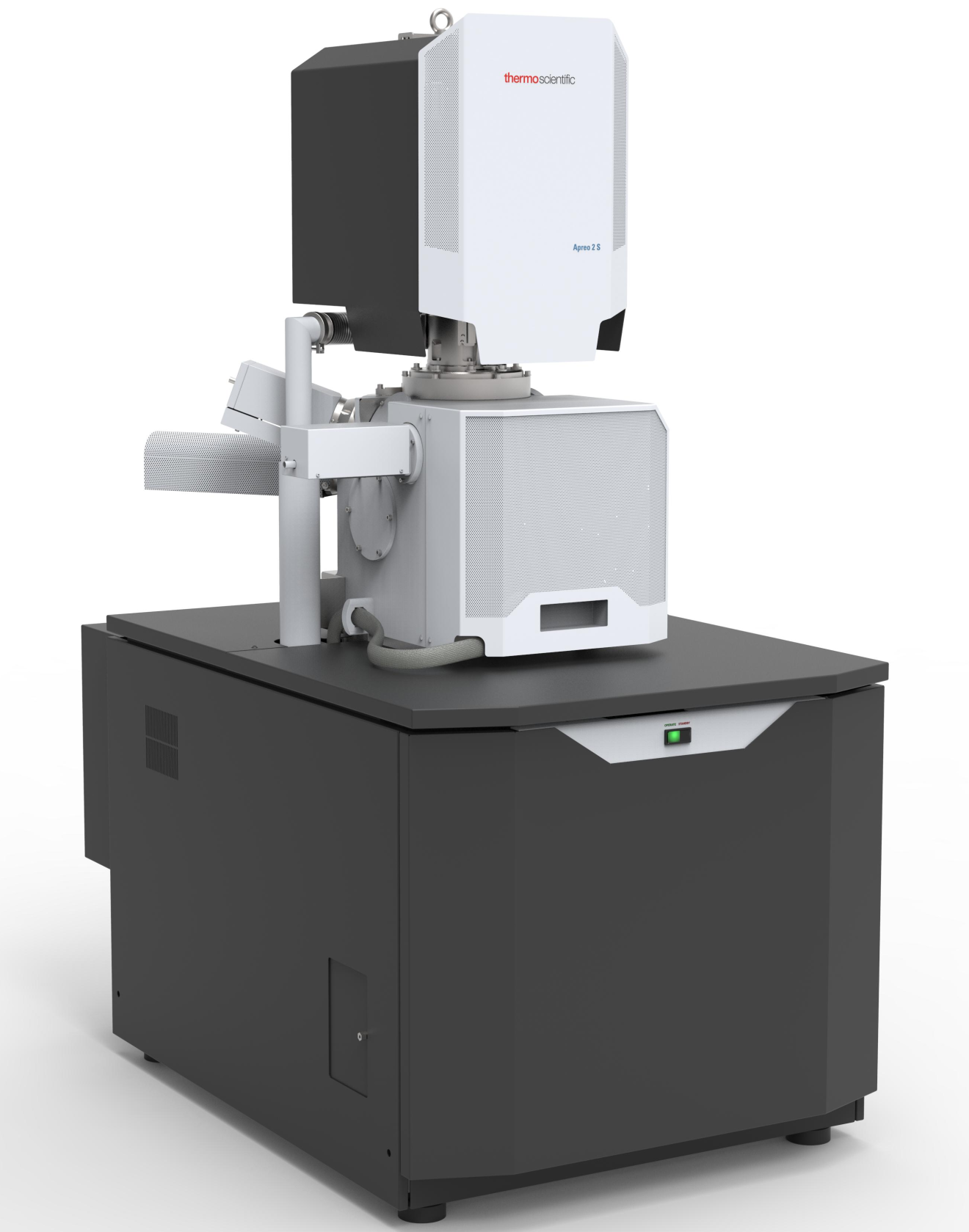
Instrument introduction:Apreo S is a feature-rich, high-performance field emission scanning electron microscope. The main principle is to use high-energy electron beams to bombard the surface of the sample to excite the physical signal of the sample, which is then converted into image information by the signal detector. Apreo's compound lens design combines electrostatic and magnetic immersion technology to produce excellent high resolution and signal selection, with a resolution of 1.0 nm under an acceleration voltage of 1 kV, and no electron beam deceleration is required. Apreo S is also equipped with a backscatter detector T1 in the lens, which is located close to the sample to ensure that the maximum amount of acquisition signal is obtained in a short time. The fast detector can always maintain good material contrast when navigating, when tilting, or when the working distance is short. Even if the current is as low as a few pA, it can provide a clear backscattered image. Apreo S is suitable for researching, characterizing and observing the morphology of materials such as nanoparticles, catalysts, powders and nanodevices, and will not reduce the resolution of magnetic samples.
Technical parameter:
Electron beam resolution
Model: Apreo S
Final lens: compound type (compound lens of electrostatic and immersion magnetic field)
High vacuum
15KV 0.7nm
1kV 1.0 nm
1 KV (Sample stage deceleration) 0.8 nm
500V (Sample stage deceleration) 0.9 nm
100V (Sample deceleration) 1.8nm
Low vacuum
15KV 1.0 nm
3KV 1.8 nm
Electron beam parameters
•Electron beam current range: 1 pA-400 nA
•Accelerating voltage: 200 V – 30 kV
•Landing energy range: 20 eV – 30 keV
•Maximum horizontal field of view width: 3.0 mm at a working distance of 10 mm (corresponding to the minimum magnification x29)
•10mm analysis working distance at 1kV electron beam resolution: 1nm
Stage and sample
Type Concentric goniometer, 5-axis motorized XY 110 × 110 mm
Repeatability <3.0 _m (at 0° tilt)
Electric Z 65 mm
Rotate n × 360°
Tilt -15° / +90°
The maximum height of the sample is 85mm from the concentric point
The maximum sample weight is 500g at any stage
The maximum sample size can be 122mm in diameter when fully rotated along the X and Y axes (if the sample exceeds this limit, the stage stroke Or limited rotation)